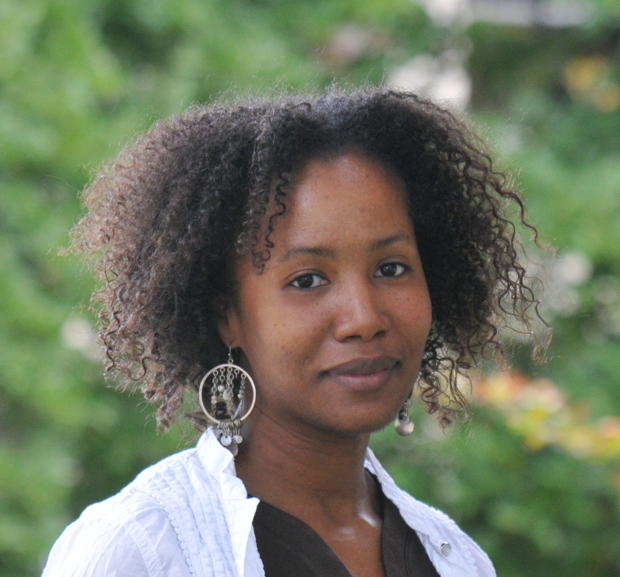In this regular feature, we hear from women academics and professionals about their lives, their faith, and the way it all intersects. Pull up a chair and join us as we chat with biomedical engineering professor Audrey Bowden.
Welcome, Audrey! Tell us about yourself.
 Name: Audrey Bowden
Name: Audrey Bowden
Current position: Associate Professor of Biomedical Engineering; Dorothy J. Wingfield Phillips Chancellor's Faculty Fellow, Vanderbilt University
Schools attended: BSE, Electrical Engineering, Princeton; PhD, Bio Medical Engineering, Duke
A Few Favorites: My son is two-and-a-half. He is learning to say please, but he says thank you well. Hearing him say “thank you mommy” melts my heart.
What was the hardest part of grad school and what kept you sane?
The hardest part was the repeated failure. It’s a natural part of the process, but it was exacerbated by feeling like I didn’t always have encouragement in the midst of failure from people I thought were best suited to help encourage me. What kept me sane was my family and knowing they were constantly praying for me. At one point, my dad something that still resonates with me, and I’ve used it as an encouragement to other people. He said, “I have confidence in the God of Audrey.” The way he phrased it still resonates with me today. I know and trust that God is faithful and constant, so even when I’m not feeling that I’m at my best or able to do something, knowing we can have confidence in God is encouraging.
What do you love most about your job right now?
I love sharing the excitement of my students when they accomplish good things. It might be a simple thing. We submitted a protocol that is necessary to get approval to do our research. A student helped draft it, and she was so excited about each little step: “It’s submitted! They reviewed it! I hope they get back to us in two days!” She brings fresh joy to the little steps, which at this point in my career, I’ve done hundreds of times and I don’t care anymore. The nice thing about academia is that there is always something new. There are always new beginnings.
There are always new students. For the first time in my new institution, I met with my freshman advisees, filled with new energy and ambition. New freshmen come every year and that’s a wonderful thing. The year I worked on Capitol Hill, by December I realized I was bored because I was expecting the new “semester” to start in January. I’m wired for change and a fresh start. I’m the kind of person who’s always trying something new: a new model, trying to improve something. Academia is a great place to experience opportunities for change and freshness.
How does your faith inform the way you think about or do your work?
I had a realization that it’s all about people, and all about winning souls. I had that realization In the context of my work. I was thinking about academic ambition and what it would mean for me to be the best in my field. I’m in the field of health science, and it’s all about discoveries that improve our understanding of health or improve people’s health.
I asked myself, “What’s the best that the best person can do?” The best that the best person can do is extend someone’s life. We might find a cure for something, but in the end, that person is only going to live a certain amount of time. No one will discover the elixir to make someone live forever.
As sad as it sounds, I felt the futility of my work. Even in the best of cases, all I could do was extend life for a short period of time; ultimately that person is going to die. What am I doing about that? The impact I can have as a Christian in sharing my faith goes beyond death. This reframed my work, and humbled me. Not that I don’t want to go after big lofty things, but I recognize the relationships I have along the way are significantly more important. I think it’s been a part of how I always I thought about things. I’ve been intentional about cultivating relationships with the staff. Faculty tend to put themselves above others at the university. I try to do little things like make sure I know the names of the admins and custodians and ask about their families.
Now, I’m trying to find ways to be more intentional about actually sharing the gospel with my students. It’s been hard to figure out ways to overtly share the gospel, because I’m entrenched in a location where political correctness is everything, but ultimately I want to get to that point. It informs everything I do in good and bad ways. Sometimes I worry that when I have a negative interaction with someone, like a student who’s not performing and I reprimand them, that it will jeopardize my ability to share the gospel with them. It causes me to want to pause, or maybe not be as forthright with things as I should be in the context of our work. It has mixed implications, but governs a lot of how I think about my work and how I do it.